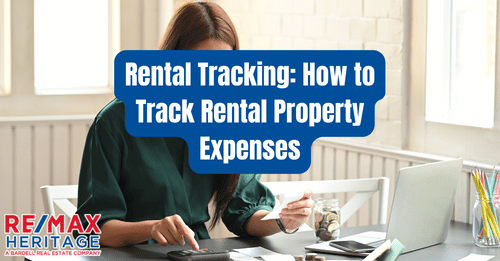How to: Track Rental Property Expenses


How to: Track Rental Property Expenses
Tracking your rental property income and expenses requires time and resources to keep everything organized. We share best practices on how to track rental property expenses and tips on how to properly manage rental tracking.
What Does Rental Tracking Consist of?
Rental tracking involves identifying which operating expenses need to be accounted for and creating a process to periodically track them. This can be done with a rental property expense tracker to streamline the process for you or via a spreadsheet if you prefer to do it yourself. Regardless of your bookkeeping method, all of your records should include accurate and up-to-date information on your rental property accounting.
Having inaccuracies on financial documents can make it difficult to analyze how profitable your rental is and correctly fill out your tax forms.
Important Records Landlords Should Save
Storing important records makes it easier to log accurate expense totals and have supporting documents to share with the Internal Revenue Service (IRS). There are six types of records you’ll want to save, including the following:
- Receipts and invoices: Receipts and invoices from contractors (such as maintenance or property managers), software platforms, utility companies, and supply stores should all be saved to prove the expense amount.
- Bank statements: Bank statements can be a great way to illustrate a months’ view of income and expenses, but the bank account should be used for only property-related transactions.
- Proof of rent payment: Rent payment documents show how much the tenant paid in rent, the date, and for which rental property.
- Mortgage loan documents: Your mortgage documents show how much you pay each month with a breakdown of the principal, interest, taxes, and insurance.
- Federal and state tax returns: Store your previous federal and state tax returns in a safe place for easy reference.
Identify What Needs to Be Tracked
Identifying what needs to be tracked can make it easier to organize your transactions and update your financial records. Some examples of income and expenses to track are:
- Recurring rental payments (rent, parking fees, pet fees)
- One-time tenant fees (move-in fees)
- Fees to break a lease
- Security deposits used to cover unpaid rent or property damage
- Recurring monthly expenses (mortgage, HOA fees, property taxes)
- One-time fees (maintenance, legal fees)
- Property depreciation.
Check Income and Expenses With Bank Statements
There can be discrepancies between your financial documents and bank statements. Periodically check your financial documents to ensure all the information is correct, especially once you know how much certain expenses totaled out to.
Doing this throughout the year can help you catch anything worth adjusting and make it easier to complete your tax forms.
Looking for an Experienced Residential Property Manager?
If you have a home to rent in the Orlando area be assured there is no substitute for experience. Covering Clermont, Winter Garden, Windermere, Dr Philips, Kissimmee, Davenport, Champions Gate, Hunters Creek and Haines City. We remain focused on this greater Orlando area to ensure we are able to provide outstanding service to our Clients without sacrificing performance. Looking for an experienced residential Property Manager in the Orlando area with a demonstrable track record – look no further.
Ready to make a Move?
Bardell Real Estate are the experts in helping you with your selling, buying or renting needs near Orlando, Florida. Make your Disney area experience a forever memorable one. Call us now to speak to a real estate agent.
[formlift id=”36911″]
